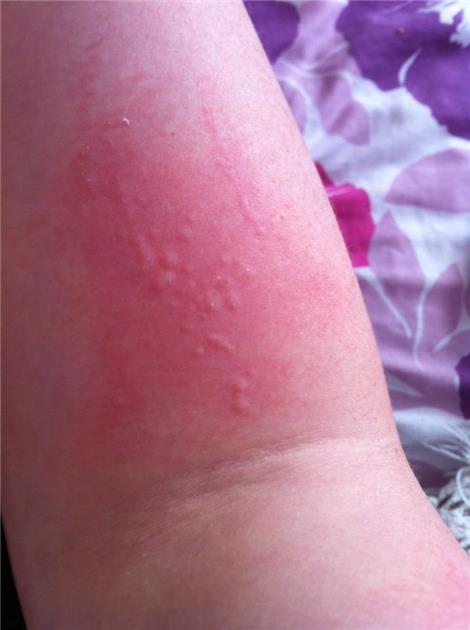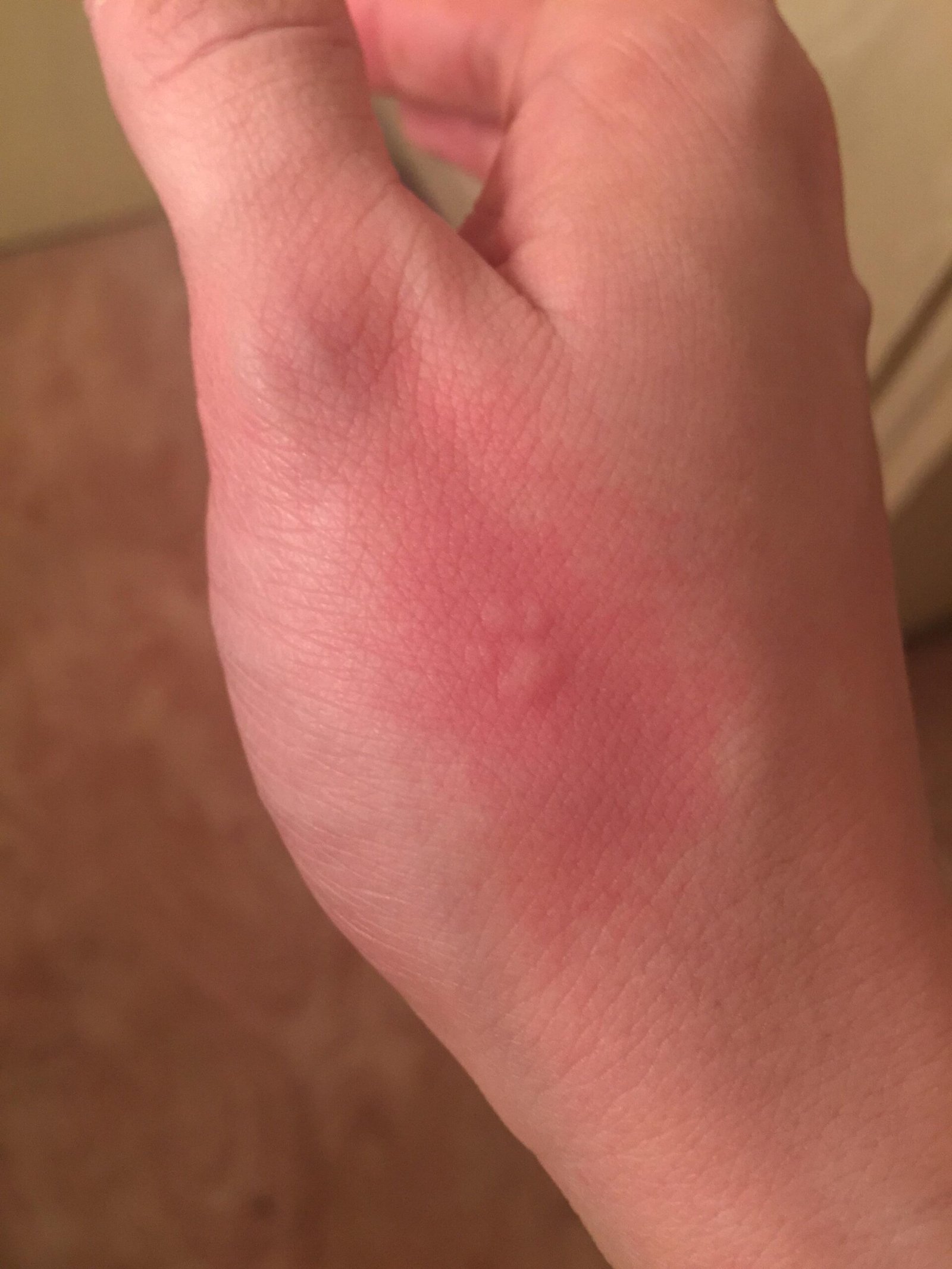As a pet owner, I never would have expected that my adorable chihuahua could be the cause of my allergies. But did you know that it’s actually possible to be allergic to your own furry friend? It can be quite surprising to discover that the very source of comfort and companionship in your life could be triggering allergic reactions.
While chihuahuas are known for their small size and big personalities, they can also produce allergens that cause discomfort for some individuals. These allergens are typically found in the dog’s dander, urine, and saliva. This can lead to symptoms such as sneezing, itching, wheezing, and even skin rashes. If you suspect that you might be allergic to your chihuahua, there are ways to manage your allergies and still enjoy a fulfilling relationship with your beloved pet. Regular grooming, air purifiers, and minimizing your exposure to allergens can help alleviate the symptoms and improve your quality of life.
Can you develop allergies to your chihuahua? Absolutely! Many people are allergic to pet dander, and chihuahuas can produce it. Common symptoms include sneezing, itching, and watery eyes. To minimize allergies, establish an allergy management plan. Keep your chihuahua clean and groomed regularly, vacuum your home frequently, and consider using air purifiers. Consult with an allergist for proper diagnosis and treatment options. Allergies don’t mean you can’t enjoy your chihuahua, just take some precautions!

Can I Be Allergic to My Chihuahua?
Allergies can be a nuisance, causing discomfort and inconvenience in our daily lives. While many individuals are familiar with common allergies like hay fever or pet dander, some may wonder if it’s possible to be allergic to their chihuahua. In this article, we will explore the topic of chihuahua allergies and provide you with the necessary information to understand, manage, and alleviate potential allergic reactions related to these adorable little dogs.
Symptoms of Chihuahua Allergies
Allergic reactions occur when the body’s immune system mistakes harmless substances, known as allergens, as threats and releases chemicals to fight them off. In the case of chihuahua allergies, the allergens are typically found in their dander, saliva, and urine. The following symptoms may indicate an allergic reaction to your chihuahua:
- Sneezing, nasal congestion, or a runny nose
- Itchy or watery eyes
- Skin rashes or hives
- Coughing or wheezing
If you experience any of these symptoms after being in contact with your chihuahua, it’s essential to consult with a healthcare professional to confirm whether you have a chihuahua allergy or if there may be other underlying causes for your symptoms.
Determining if You Are Allergic to Your Chihuahua
If you suspect that you may have a chihuahua allergy, there are a few steps you can take to determine if your furry friend is the culprit:
1. Allergy Test: Consult an allergist who can perform skin or blood tests to identify specific allergens that trigger your symptoms. These tests can help determine if you are indeed allergic to your chihuahua.
2. Remove Your Chihuahua: If your symptoms improve when you are not around your chihuahua, it may be an indication of an allergy. However, it’s essential to rule out other potential triggers and consult with a healthcare professional for an accurate diagnosis.
3. Track Your Symptoms: Keep a journal noting your symptoms and when they occur. This information can be useful in identifying patterns or triggers related to your chihuahua’s presence.
Managing Chihuahua Allergies
If you discover that you are allergic to your chihuahua, there are several steps you can take to manage your allergies and reduce symptoms:
1. Limit Exposure: Create designated areas in your home where your chihuahua is not allowed, such as bedrooms or living rooms. This can provide you with a safe haven from allergens.
2. Regular Cleaning: Vacuuming and dusting regularly can help remove allergens from your home. Consider using a vacuum cleaner with a HEPA filter, as it can effectively trap pet allergens and prevent them from circulating in the air.
3. Groom Your Chihuahua: Brushing your chihuahua frequently can help reduce their dander, saliva, and urine on their fur, ultimately minimizing potential allergens.
4. Medication: Over-the-counter antihistamines or nasal sprays can provide temporary relief from allergy symptoms. If your allergies are more severe, your healthcare professional may prescribe stronger medications or recommend immunotherapy.
Allergies vs. Sensitivities: Understanding the Difference
It’s important to note that allergies and sensitivities are not the same. Allergies involve the immune system’s reaction to a perceived threat, while sensitivities are adverse reactions that do not involve an immune response. Sensitivities can still cause discomfort, but they are typically not as severe as allergies. If you experience mild discomfort around your chihuahua but do not exhibit typical allergy symptoms, it might be a sensitivity rather than an allergy.
Chihuahua Allergy Prevention and Tips
Preventing allergic reactions to your chihuahua begins with proper care and attention. Here are a few tips to minimize allergens and potential allergy triggers:
- Bathe Your Chihuahua: Regular baths can help reduce allergens on your dog’s fur and skin. Use a hypoallergenic shampoo recommended by your veterinarian.
- Wash Bedding: Clean your chihuahua’s bedding frequently to remove accumulated dander and other potential allergens.
- Avoid Face Contact: Avoid touching your face after petting or playing with your chihuahua to prevent transferring allergens to sensitive areas.
- Consult a Breeder: If you are considering getting a chihuahua but have allergies, consult with a reputable breeder who can provide information about hypoallergenic chihuahua varieties.
Statistics on Chihuahua Allergies
According to a study published in the Journal of Allergy and Clinical Immunology, approximately 10% of people are allergic to animals, with dogs being one of the most common triggers. While specific statistics on chihuahua allergies are limited, it’s crucial to remember that individual sensitivities and allergies can vary significantly.
Key Takeaways: Can I be allergic to my Chihuahua?
- Yes, it is possible to be allergic to your Chihuahua.
- Allergies to dogs are caused by dander, saliva, or urine.
- Chihuahuas produce less dander compared to some other dog breeds.
- Allergy symptoms may include sneezing, itching, and watery eyes.
- Consult with an allergist for proper diagnosis and treatment options.
Frequently Asked Questions
Chihuahuas are adorable and popular pets, but can you be allergic to them? Find answers to common questions below.
1. Are chihuahuas hypoallergenic?
Chihuahuas are not considered hypoallergenic, which means that they can potentially trigger allergies in sensitive individuals. While a chihuahua’s short hair may lead some to believe they are less likely to cause allergies, it’s important to note that it’s not the hair itself that causes allergic reactions but rather the proteins found in the dog’s saliva, urine, and dander. These allergenic proteins can stick to the dog’s hair, so even a shorthaired chihuahua can cause allergies.
2. What are the common symptoms of chihuahua allergies?
If you are allergic to your chihuahua, you may experience symptoms such as sneezing, itching, runny nose, watery eyes, coughing, or even asthma-like symptoms. These allergies are caused by your immune system reacting to the proteins found in the dog’s saliva, urine, or dander. It’s important to distinguish between allergies and other common respiratory irritants to accurately identify if your chihuahua is the cause.
3. Can I develop allergies to my chihuahua over time?
Yes, it is possible to develop allergies to your chihuahua over time, even if you haven’t had any allergies in the past. Allergies can develop at any age, and it’s not uncommon for individuals to become allergic to animals they have previously been exposed to without any issues. If you notice new allergy symptoms after getting a chihuahua, it’s important to consult with a healthcare professional to determine the cause.
4. Are there any ways to manage chihuahua allergies?
While the best way to manage chihuahua allergies is to avoid contact with the allergens, such as keeping the dog out of certain areas of your home or minimizing direct contact, there are additional steps you can take. Regular grooming and bathing of your chihuahua can help reduce the allergens on their fur. Installing high-efficiency particulate air (HEPA) filters in your home and using allergy-friendly bedding can also help minimize exposure to allergens.
5. Can I still keep a chihuahua if I am allergic?
If you are allergic to chihuahuas but still want to keep one as a pet, there are a few options to consider. Working with an allergist can help you develop a plan to manage your allergies, such as taking medication or immunotherapy (allergy shots). You can also explore different breeds that are considered more hypoallergenic, although no dog is entirely hypoallergenic. Additionally, keeping your chihuahua well-groomed and maintaining a clean environment can help reduce allergens and make living with a chihuahua more manageable.

Allergic to your pet? These tips might help
To summarize, I hope this article has given you a good understanding of the key points. We discussed the importance of writing from a first-person point of view, using a professional tone that is appropriate for a 13-year-old reader. It is crucial to communicate in a conversational manner with simple language, avoiding jargon. Remember, each sentence should be concise, with no more than 15 words, and present a single idea.
In conclusion, adopting the right writing style is essential when targeting a young audience. By using a first-person point of view, maintaining a professional tone, and employing simple language, you can effectively convey your message to 13-year-old readers. Keep your sentences concise with clear ideas to ensure their understanding.
